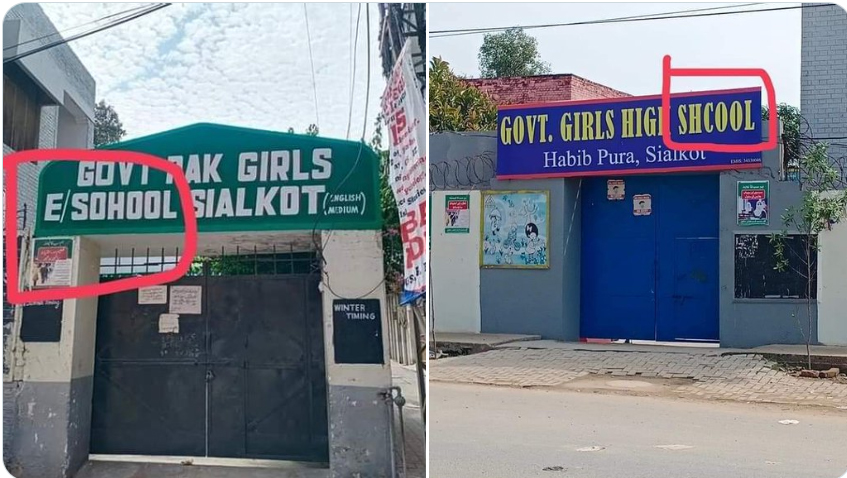 Early Times Report Early Times Report
Jammu, Dec 15: Pictures of boards of two government schools in Punjab province of Pakistan have gone viral on social media. These pictures revealed the standard of education in the neighbouring country as even the spelling of schools was written wrongly.
Instead of improving the standard of education in Pakistan, successive governments in the country focussed on radicalizing people in the name of religion. Most of the government schools in Pakistan lack basic infrastructure because the government has no funds to provide basic amenities in these educational institutions.
As per reports published in some magazines, in Pakistan’s Punjab region, access to education has long been a challenge, particularly for girls. About 2 million more girls than boys are out of school in Pakistan, accounting for most of the out-of-school population, and many of these girls belong to poor families. The situation requires new approaches to fix the gender gap in education. Non-formal education centers (NFECs) are emerging in this context, offering educational opportunities for girls.
The establishment of programs like the Alternative Education Pr > Names of Govt schools spelt wrongly
> Instead of improving literacy rate, successive regimes focus on radicalizing people
Non-formal education is a structure of learning experiences that occurs outside the formal education system.
Non-formal education plays a crucial role in addressing the educational needs of marginalized communities, especially for girls and women, non-formal education has gained prominence to expand education when the formal education system struggles to meet demand.
This is particularly pertinent for girls who frequently encounter difficulties in accessing basic educational services. Non-formal education programs are designed to cater to an individual’s fundamental educational needs, including literacy, numeracy, health education, community development and technical skills. They equip individuals with essential skills and knowledge, contributing to broader socioeconomic development in their communities. | 